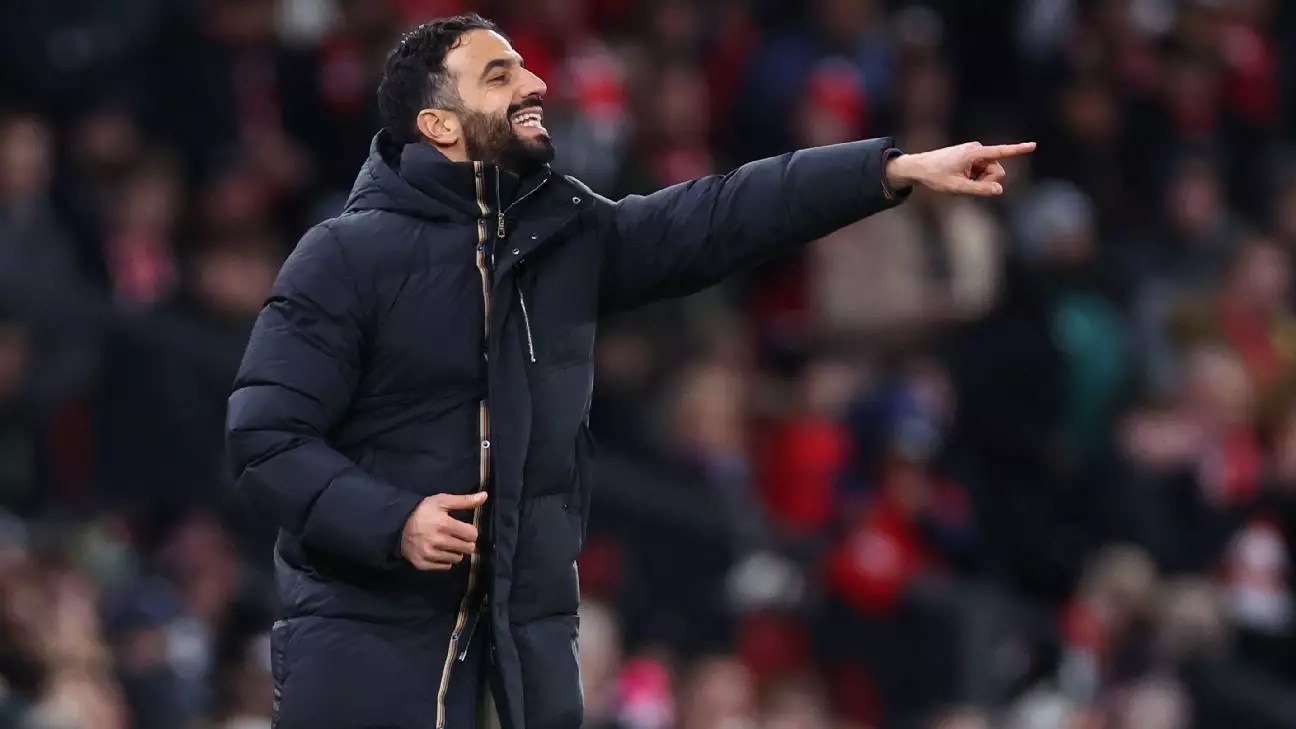Ruben Amorim, the newly appointed manager of Manchester United, is currently navigating the turbulent waters of a high-stakes environment. His early comments indicate a profound sense of anxiety regarding the performance of his squad as they acclimate to his strategies. After a challenging start, including a draw with Ipswich and a hard-fought 3-2 victory against Bodo/Glimt in the Europa League, Amorim’s reflections reveal the weight of expectation on his shoulders. With the team struggling to implement his tactical demands, he candidly portrays the discomfort and nervousness that accompany his new role.
The win against Bodo/Glimt did offer a glimmer of hope for Amorim, yet it also highlighted the ongoing struggles of his players. Their ability to briefly take the lead before allowing the opposition to scramble back underscores the learning curve they are on. “You don’t control nothing at the moment,” Amorim stated, emphasizing the unpredictability of the early days in his managerial career. The fact that he feels the need to make significant changes to the lineup even just a few games into his tenure reveals a tactical adaptation phase that will require ongoing diligence and patience.
Amorim’s recent decision to rotate six players in the match against Bodo/Glimt reflects a strategy aimed at maximizing team effectiveness while considering fitness levels. He took a calculated approach, deploying players he believed would implement his pressing style effectively. However, he soon encountered limitations as fatigue became apparent, particularly in players such as Rasmus Hojlund, who Amorim noted showed signs of exhaustion towards the end of the match. Such comments not only highlight the physical demands placed on the squad but also suggest a potential need for improved conditioning and squad management.
As Manchester United prepares to host Everton, Amorim acknowledges that further alterations to the roster will be necessary, driven by what he describes as “the fitness of the players.” This proactive approach to squad rotation could prove crucial as he endeavors to establish a more cohesive and resilient team. However, the constant pressure of results in the Premier League looms large, meaning Amorim must balance nurturing player development with the immediate requirement for positive performances.
Ultimately, Amorim’s experience so far serves as a poignant reminder of the complexities inherent in managerial roles at elite clubs. His admission of anxiety reveals the human side of coaching elite athletes, where strategies often clash with realities on the ground. While the initial results have been a mixture of promise and apprehension, Amorim’s ability to adapt and evolve will ultimately determine his tenure at Manchester United. As he continues to grapple with the pressures of high expectations, the coming weeks could define his legacy and outline the future direction of the club under his leadership.


Leave a Reply